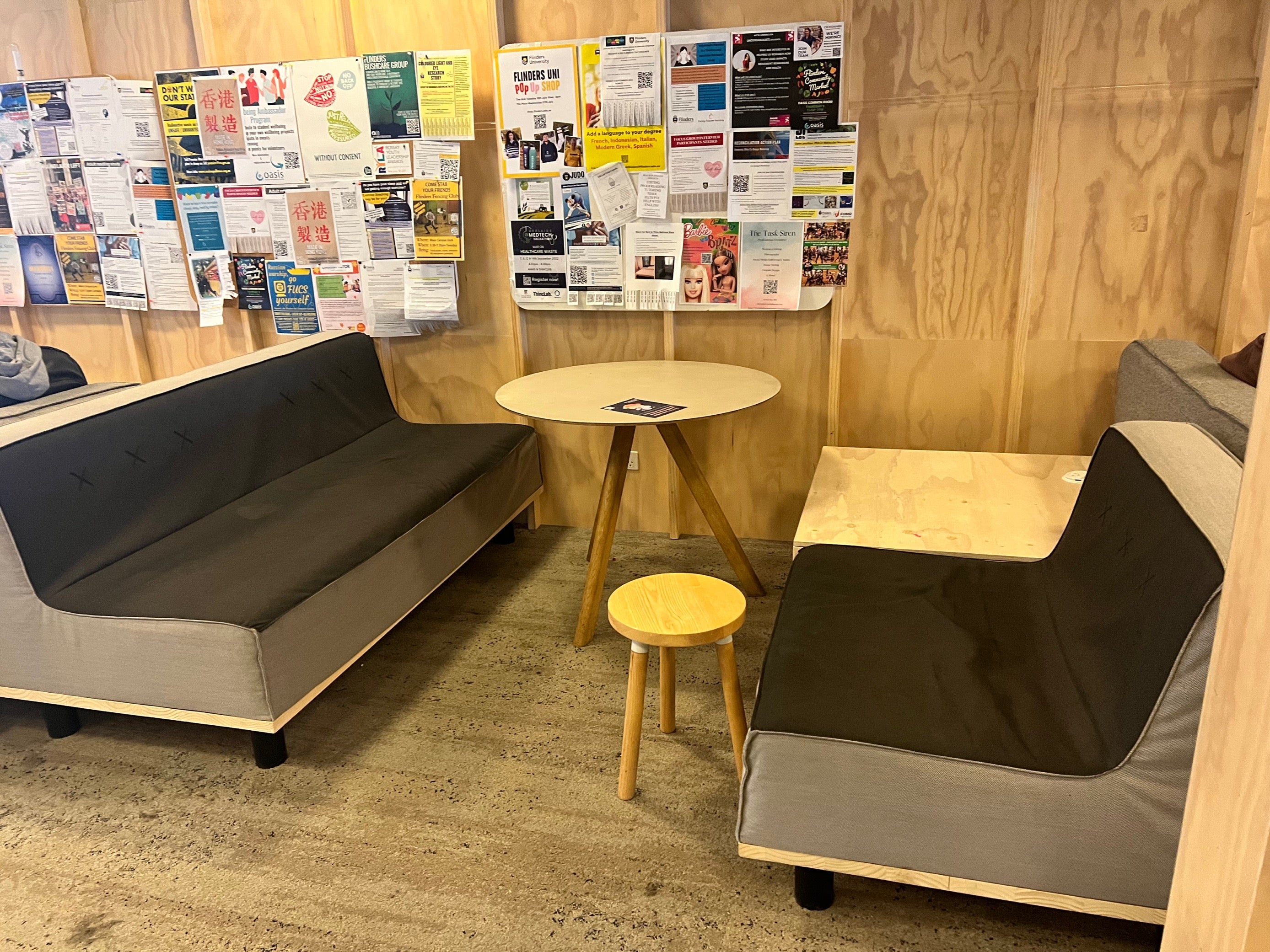Work
Embracing the circular economy at Flinders University
Embracing the circular economy at Flinders University
In 2016, Koskela fitted out the main hall at Flinders University. In 2022, we were invited back to refurbish the space. The project embodied our Repair & Renew philosophy, and proved that good industrial design and good sustainability go hand in hand. At Flinders, everything old is new again.
As product creators, we’ve always been keenly aware of our impact on the environment. Not just during production, but the ongoing impact of owning a piece of furniture. The wear and tear. The way materials age over time. The idea that industrial objects should be repaired and renewed, rather than just replaced.
That’s the real magic behind a circular economy. Instead of viewing furniture as something to use and throw away, we need to consider the full lifecycle. Less a transaction and more an ongoing investment. Something that can potentially last generations, with a little love and care and imagination.
So when Flinders University asked us to refurbish a space we’d worked on before, we approached it with one overriding objective: to throw away as little as possible and use recycled material.

Before Timber plinths being refreshed and re-used

In 2022, Flinders approached us again, this time to refurbish the hall space. As a first step, we decided to move from custom-built solutions to more standardised catalogue pieces. This not only kept the cost down for Flinders, but would make future repairs and refurbishments much simpler.

Next, the Koskela team visited the site to assess the current furniture, do a count and take some measurements. We needed to plan the project with care. Universities are rarely quiet, and we wanted to disrupt the day-to-day campus experience as little as possible. We also had a very limited time window: six months from first tender to installation.
When the students left for their December holidays, we moved in, rolled up our sleeves, and got to work.

Koskela collaborated with local Adelaide suppliers to repair the existing furniture and ensure better sustainability outcomes, shrinking our logistics and carbon footprint as much as possible. All Quadrant sofas were standardised and the plinths themselves refreshed and re-used.
The worn and damaged fabric was also recycled by a local company that specialises in re-purposing upholstery, and the new covers were designed to be removable; that will simplify any future restoration work. As a result of all this, the original Quadrant sofas became circular, and Flinders achieved their goal of a new-look hall – minus unnecessary waste.
Part of industrial design, perhaps the most important part, is being aware of how your pieces will be used. It’s an art of function as much as form.

In the case of Flinders, our Quadrant sofas had been (and would continue to be) subjected to a much higher standard of wear than usual, so we needed an ongoing solution. This fabric will inevitably fade and tear over time. The structures themselves may need tweaks or refurbishments. But that’s no reason to throw them away.
Koskela pieces are purpose-built to last from sustainable materials, but they’re also built to be fixed and refreshed – from the upholstery to the timber frames. And once you purchase a Koskela piece, you’re automatically able to access our full Repair and Renew program for as long as you own that product. It’s part of our commitment to the circular economy.




